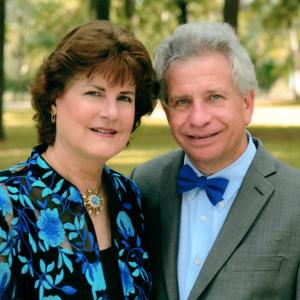Alumnus makes STEM education more accessible for Cleveland students
In the 1960s and ’70s, urban decline in Cleveland put financial strain on public schools, leaving them overcrowded and under-resourced. Low-income and minority communities were hit hardest, including the St. Clair-Superior neighborhood where Ed Lehotsky grew up.
Lehotsky’s parents worked tirelessly to send their six children to private schools, but educational resources were still limited, particularly when it came to math and science.
“I learned a lot,” he said, “but by my junior year, I had exhausted all the knowledge on the school’s bookshelves and still wanted more.”
With a year and a half left in high school, Lehotsky and a few other promising students were selected to take courses at Case Institute of Technology, a predecessor school to Case Western Reserve University. The experience was transformative and inspired Lehotsky to pursue a bachelor’s degree in electrical engineering and applied physics at the university.
Now retired from a successful career in the liquefied natural gas industry, the alumnus wants to offer the same opportunities to students facing similar challenges.
“I’d like to do what Case [Western Reserve] did for me: to give underprivileged kids a head start in high school so they have the desire and tools to pursue higher education,” said Lehotsky (CIT ’76).
He and his wife, Joyce, established the Lehotsky Endowed Student Support Fund at Case School of Engineering to support the Envoys program.
Founded in 2006, Envoys brings students from Cleveland and East Cleveland high schools to campus for three years and three summers of intensive research, mentorship and coursework in science, technology, engineering and mathematics.
Of the hundreds of students who have participated over the years, more than 90% have been Black or Latine—a statistic that was important to Lehotsky, as he hopes to help increase access to the engineering field among historically underrepresented groups such as these.
“During my career, I spent a lot of time overseas visiting or working alongside engineers from many cultures,” he said. “It’s important to encourage diversity in the field and bring in people with different perspectives and experiences.”
A key component of Envoys is a summer stipend worth the equivalent of full-time work, allowing students to participate without financial stress. Unrestricted funding—like the Lehotsky Endowed Student Support Fund provides—is enabling Envoys and similar programs at the university to expand, not only reaching more students but offering additional resources such as meals and financial literacy courses.
“Case [Western Reserve] gave me a head start, and I’ve always been appreciative of that,” Lehotsky said. “I’m grateful I can give back to the university for all it gave to me.”
Originally published in the summer 2024 issue of Forward Thinking magazine


